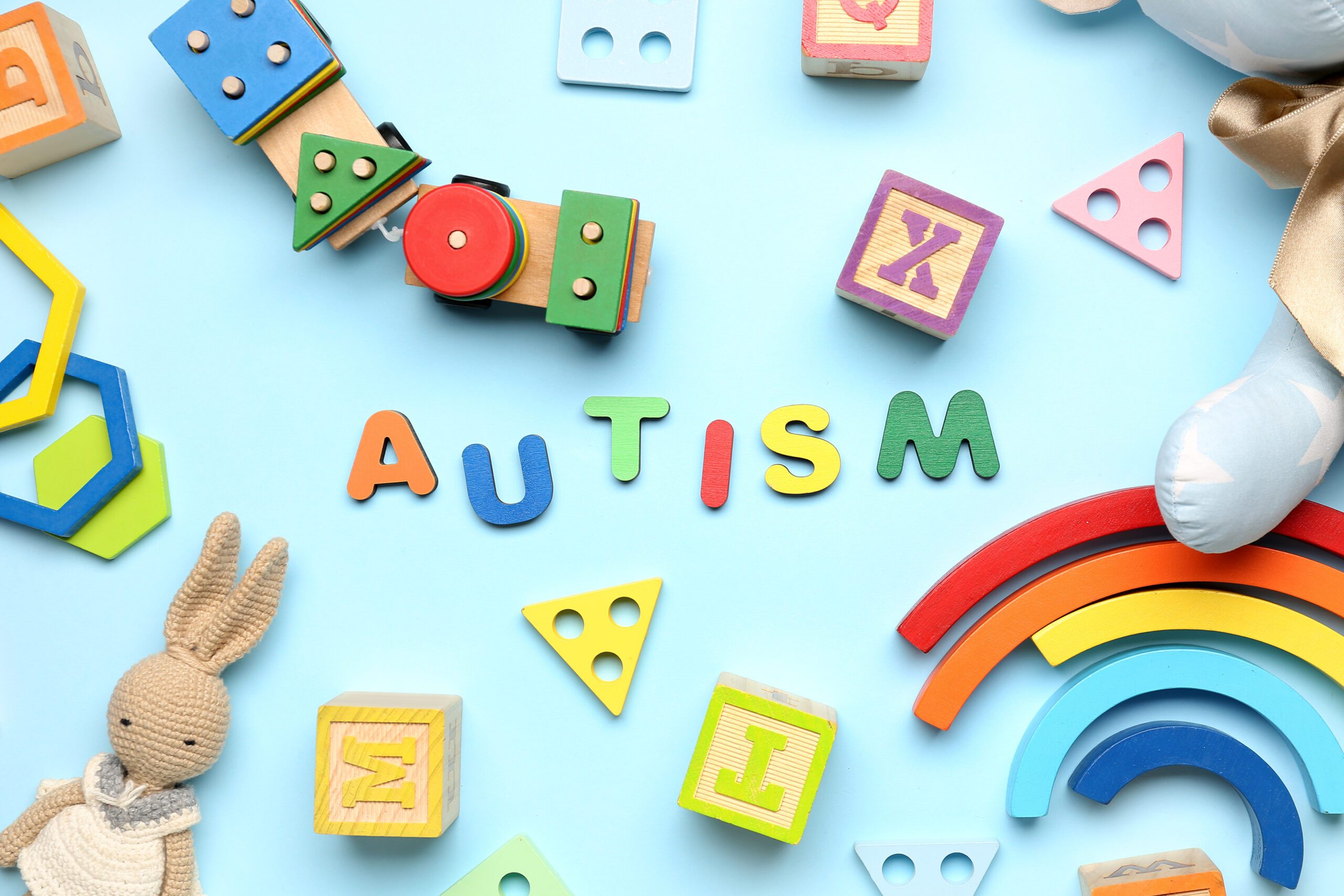
How Early Intervention Makes a Difference for Children with Autism
When it comes to autism, early intervention is one of the most effective ways to support a child’s development. The sooner a child with Autism Spectrum Disorder (ASD) receives specialized support, the better their chances of improving communication, social skills, and adaptive behaviors.
From speech therapy to ABA therapy for young children, a range of evidence-based interventions can help children reach their full potential. In this article, we’ll explore the importance of early intervention for autism, its benefits, and how parents and caregivers can take action.
Understanding Early Intervention for Autism
What Is Early Intervention?
Early intervention refers to therapies and services designed to support young children with developmental delays, including autism. These services focus on helping children build essential skills in language, communication, social interaction, and daily functioning.
- Typically starts before the age of 3
- Includes therapies like ABA, speech, and occupational therapy
- Tailored to meet a child’s unique developmental needs
Early intervention is not a one-size-fits-all approach. Instead, it involves creating a personalized plan based on a child’s strengths and challenges.
Why Early Intervention Matters
The first few years of life are critical for brain development. Research shows that young children’s brains are highly adaptable, meaning early interventions can have a profound impact on their ability to learn, communicate, and interact with others.
Studies have found that children who receive early intervention services show significant improvements in communication skills, cognitive abilities, and behavior. Delaying intervention, on the other hand, can make it more challenging to address developmental delays later on.
The Benefits of Early Intervention for Autism
1. Improved Cognitive and Language Skills
Early intervention programs, especially ABA therapy for young children, can significantly boost cognitive development and language skills.
- Helps children develop speech and non-verbal communication
- Teaches foundational learning concepts like attention and memory
- Enhances comprehension and expressive language abilities
A study published in the Journal of Autism and Developmental Disorders found that early language intervention can improve speech clarity, vocabulary, and social communication.
2. Better Social and Emotional Development
Children with autism often struggle with social interactions, but early intervention helps them learn critical social skills, including:
- Understanding emotions and facial expressions
- Engaging in conversations and play
- Building relationships with family members and peers
Social skills training, which is often a key part of early intervention programs, provides structured opportunities for children to practice interacting with others.
3. Reduced Behavioral Challenges
Repetitive behaviors, sensory sensitivities, and difficulty adapting to changes are common in children with autism. Early intervention helps children:
- Manage sensory sensitivities through exposure therapy
- Develop self-regulation techniques to prevent meltdowns
- Learn positive behaviors to replace repetitive or aggressive actions
With the right support, children can learn strategies to manage their emotions and respond to their environment more effectively.
4. Greater Independence and Adaptability
The goal of early intervention is to help children develop the skills they need to navigate daily life. By focusing on self-care routines, adaptive skills, and problem-solving abilities, early intervention programs set children up for long-term success.
- Teaches self-care skills like dressing, brushing teeth, and using utensils
- Helps with transitioning between activities at home and school
- Encourages participation in structured learning environments
Key Early Intervention Therapies for Autism

1. ABA Therapy for Young Children
Applied Behavior Analysis (ABA) is one of the most widely recommended therapies for autism. ABA therapy for young children focuses on reinforcing positive behaviors and reducing behaviors that interfere with learning.
- Uses structured learning and reinforcement techniques
- Helps children build communication, play, and social skills
- Can be customized to fit a child’s individual needs
ABA therapy is often delivered in homes, schools, or specialized clinics, making it a flexible and effective option.
2. Speech and Language Therapy
Many children with autism experience speech and language delays. Early speech therapy focuses on:
- Improving articulation and pronunciation
- Teaching non-verbal communication methods (e.g., PECS, sign language)
- Enhancing understanding and use of language
This therapy plays a crucial role in helping children develop functional communication skills.
3. Occupational Therapy (OT)
Occupational therapy helps children develop the skills they need for everyday tasks.
- Enhances fine motor skills for activities like writing and dressing
- Helps with sensory processing challenges
- Teaches self-care skills like eating and grooming
OT is especially beneficial for children who struggle with sensory sensitivities or motor coordination.
4. Social Play and Developmental Therapy
Social play therapy focuses on helping children engage with peers and practice social interactions in a structured setting.
- Encourages turn-taking and cooperative play
- Teaches emotional regulation through guided activities
- Helps children learn to interpret social cues
Programs like the Early Start Denver Model (ESDM) incorporate play-based learning to support cognitive and social development.
When to Start Early Intervention
Recognizing Early Signs of Autism
Parents should look out for early signs of autism, which can appear as early as 12 months old. These may include:
- Limited eye contact or lack of social engagement
- Delayed speech or absence of verbal communication
- Repetitive behaviors (e.g., hand flapping, rocking)
- Intense focus on specific objects or routines
If parents notice these signs, they should seek an evaluation from a pediatrician or developmental specialist.
Getting an Early Diagnosis
Autism can be diagnosed as early as 18 months, but many children are diagnosed later. Early screening is essential to ensure that children receive intervention as soon as possible.
- Developmental screenings are recommended at 9, 18, and 24 months
- Pediatricians can refer children for autism-specific evaluations
- Early diagnosis allows for faster access to therapy services
The sooner a child is diagnosed, the earlier they can begin beneficial therapies.
How Parents and Caregivers Can Take Action
1. Advocate for Early Testing and Diagnosis
Parents play a key role in ensuring their child receives timely intervention. They should:
- Keep track of developmental milestones
- Ask pediatricians for autism screenings if concerns arise
- Seek referrals to specialists when needed
2. Find the Right Intervention Program
Once a diagnosis is made, it’s essential to choose the right intervention services.
- Look for ABA therapy for young children in your area
- Explore speech, occupational, and social skills programs
- Choose certified professionals with experience in early intervention
3. Get Involved in Therapy
Parental involvement is crucial for maximizing the effectiveness of early intervention.
- Learn ABA techniques to support therapy at home
- Practice speech and occupational therapy exercises with your child
- Create a structured and consistent home environment
Parents who actively participate in therapy sessions often see better outcomes for their child.
Common Questions About Early Intervention and Autism

Is ABA Therapy Effective for Young Children?
Yes, ABA therapy has been proven to help children with autism develop essential communication, social, and behavioral skills.
At What Age Should Early Intervention Start?
The earlier, the better. Many experts recommend starting interventions between 18 months and 3 years old.
Does Insurance Cover Autism Early Intervention?
Many insurance plans cover ABA therapy and other interventions, but coverage varies. Parents should check with their providers for details.
Can Autism Symptoms Improve With Early Intervention?
Yes, while autism is a lifelong condition, early intervention helps children develop skills that improve their quality of life and independence.
Conclusion
Early intervention autism programs can make a life-changing difference for children and their families. By recognizing the early signs, seeking a timely diagnosis, and using therapies like ABA, speech therapy, and occupational therapy, children with autism can gain essential skills that set them up for future success.
If you’re seeking personalized support for your child’s development, consider reaching out to Achievement Balance. Our team specializes in Applied Behavior Analysis (ABA) therapy for young children, along with speech and occupational therapies, all tailored to meet your child’s unique needs. We are committed to fostering growth and independence in a compassionate, family-oriented environment.
Contact Achievement Balance Today:
- Phone: (972) 410–5297
- Email: info@achievement-balance.com
- Locations:
- 3401 Yucca Dr, Flower Mound, TX
- 2600 Bobcat Boulevard, Trophy Club, TX
- 1620 W Northwest Hwy, Grapevine, TX
Take the first step towards empowering your child’s future by contacting us to schedule an appointment or to learn more about our comprehensive services.

